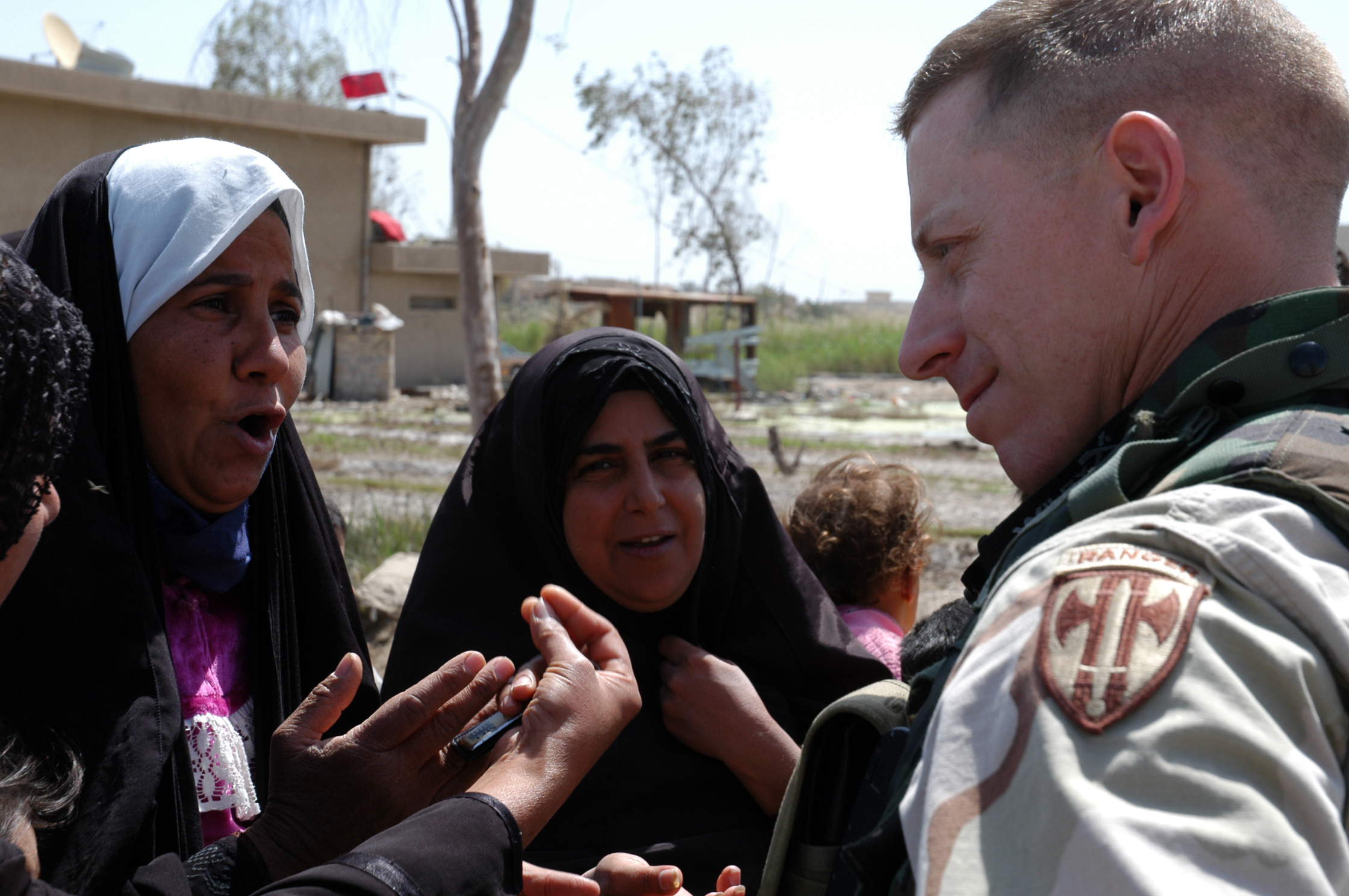
Continued Service: Veterans in Idaho Education
While it might be little noticed by most people, military veterans are having a significant impact on K-12 education in Idaho.
It seems only fitting on this Veterans Day to pay tribute to those men and women who have chosen to continue their service in classrooms, on boards, and in the public education policy realm.
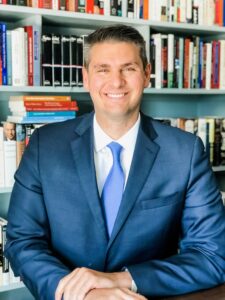
“Most military officers, if they put in 25 years, they’re still incredibly young when they retire, and they have a lot to offer based on their leadership experience,” said Greg Wilson, a veteran of the Idaho and Washington National Guard who now serves as Idaho Governor Brad Little’s Senior Education Policy Advisor. “They are needed in fields like education, which some of them might not immediately think about.”
Some veterans, however, knew for years before retiring that education would offer a logical second career. Take Andy Johnson, for example (featured photo above). Fairly early in his 20-plus-year military career he became intrigued by the prospect of teaching at some future point.
Halfway through his initial five-year enlistment, while working in Army intelligence, he met a civilian employee of the National Security Agency in Germany. The two men loved reading and literature, and spent hours discussing books.
“At some point I tossed out the idea that I’d like to teach some day,” Johnson recalled. Hearing those words come out of his mouth surprised him, because “the only thing I ever wanted to be was a soldier, and that was the only thing I ever thought I would be.”
When his five-year enlistment ended, he got an ROTC scholarship and enrolled in a university near his parents’ Missouri home. But his thoughts of getting a teaching degree were dashed by the requirement to spend an extra year student teaching. He was eager to return to the military. So he earned his degree in German instead.
Years passed in dedicated military service, and Johnson subsumed his thoughts of teaching for many years. But his wife Evelyn, whom he met in the Army, got a Master’s Degree in Education after four years of military service, and became a university professor and nonprofit leader.
“That inspired me a bit,” Johnson said. After a harrowing year in Iraq in 2004-05, and two years at embassy postings in Europe, Johnson retired, and, using his Veterans Administration benefits, enrolled in a teacher certification program. The couple moved to Boise after Andy retired, and he became a certified teacher.
His first teaching job was at the independent Riverstone International School, where he had the opportunity to lead a series of challenging outdoor trips. “That was a really good way for me to transition after an intense career in the army.” He also liked the fact that Riverstone was an International Baccalaureate (IB) School, with an emphasis on languages and world history and literature.
In the summer of 2020, Johnson became the deputy director of the Bluum-supported Sage network of charter IB schools, and earlier this year, he became executive director. His army career, he said, prepared him well for the world of education.
“One of the things I loved about the army was that sense of mission and purpose,” Johnson said. “And I found that schools offered that really purposeful work; work with meaning, messy human work. I like doing hard, complex things with other people, in this case kids and other teachers.”
Johnson found that his military experience served him well in schools, a sentiment echoed by the other half-dozen veterans interviewed for this article. “There are so many things about the military life, and that you learn in the armed forces, that translate pretty deeply to schools,” he said. “The problem-solving and decision-making frameworks, the imperative to work with other people.”
Emily Downey, Sage’s director of finance and operations, grew up in a military family, and has closely observed Johnson’s leadership. What she has seen from military people and veterans over the years is unwavering focus and dedication.
“Veterans see every single thing they do at a very human level, because that’s what they’ve had to deal with: people. It doesn’t matter what strategy or battle you’re going into. It is all about the people. People and planning.”
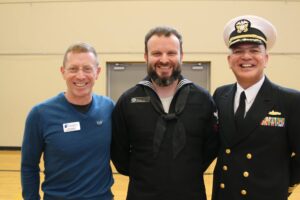
Back at Riverstone, one of Johnson’s colleagues was Roy Ledesma, a navy veteran with an equally impressive military resume. A graduate of the U.S. Naval Academy and the Naval Postgraduate School in Monterey, California, Ledesma spent five years on ships before focusing on naval oceanography. The last posting of his military career was teaching calculus and coaching basketball at his alma mater, the Naval Academy.
That teaching experience whetted his appetite for more. “I thought, ‘oh, man, this is actually pretty cool. I could do this when I grow up,’” Ledesma said.
Since retiring from the military in 2007, Ledesma has taught high school mathematics at private, public charter, and public schools in Maryland and Idaho. He currently teaches middle school math at North Junior High School in Boise. It’s his first district public school teaching gig, after receiving his Master’s Degree in teaching from Boise State University last May.
Why teaching? “I knew that when I retired, I wanted to give back again,” Ledesma said. “I knew I didn’t want to be a defense contractor or a beltway bandit.”
Like Johnson, Ledesma views his military career as excellent preparation for teaching. Having grown up in a low-income community in Southern California, he wanted to work with kids facing challenges.
And as his teaching career has progressed, he has gone from teaching the elite students at the Naval Academy and a toney Maryland private school to the more diverse and challenged population of Boise middle-schoolers. Each step into increasing challenge has renewed his appreciation for his military preparation.
“I do not have classroom management issues,” Ledesma said. “I run a pretty tight ship. I’m fair and I’m consistent, and a lot of the leadership experience I gained working with young sailors and junior officers, I treat my students the same way. I respect them, and I want their respect in return.”
Veteran Jonni Williams spent just two years in the Navy, starting at age 18. But even that short military experience has had an impact on her long teaching career. Now a family and consumer science teacher at Meridian Middle School, Williams is in her 15th year of teaching.
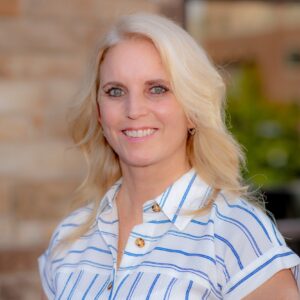
A key lesson she took away from her military service is to solve problems with your peers or using your own ingenuity rather than always “bombarding people at the top.” Trying to go around the chain of command to seek help from a high-ranking superior was always a bad idea in the Navy, she said.
More recently, Williams enrolled in a year-long leadership program through Mission43, a veteran-serving program funded by the J.A. and Kathryn Albertson Family Foundation. That experience brought back to her some of the long-ago lessons she learned in the military, chief among those lessons was that she can be, and in fact is a leader.
“I never used to think that as a teacher I was in a real leadership role,” Williams said. “But now I realize that I can be a leader in more ways than I was aware of. I’m trying to push myself and the leadership program has helped boost my confidence.”
Stephen Lambert, who retired from the Air Force in 2014 with the rank of colonel, exudes leadership as head of the Treasure Valley Classical Academy in Fruitland. During his 24-½ year military career he had what he calls ‘a dual life,’ on the operations side of the Air Force and working on strategy and policy for the Air Force and the Department of Defense.
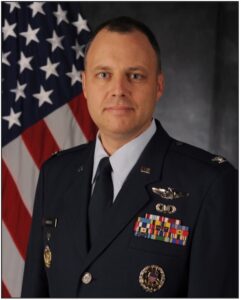
Lambert knew early on in his military career that he wanted to transition someday into education. He and his wife home-schooled their four sons, “so human formation, education was always on my mind.”
Lambert said he felt “drawn to shape the next generation of citizens to protect this experiment with liberty that we’ve been gifted,” which made K-12 education a natural fit.
He ended up working with Hillsdale College’s Barney Charter School Initiative, first in Atlanta Public Schools, and more recently by launching the classical academy in rural Idaho. Lambert said working in education has been as fulfilling a post-military career as he could have hoped for. And he said other veterans might find education an equally compelling second-career choice.
“I would encourage veterans to consider continuing their service in public education,” he said. “Veterans bring a passion and a sense of purpose to what happens in the classroom because of where they’re coming from and what they did previously. It’s deeply satisfying, and there’s an urgent need for your service.”
Sage International School, Forge International School, and Treasure Valley Classical Academy are Bluum partner schools and have received grant support from the J.A. and Kathryn Albertson Family Foundation. In addition, Forge International School and Treasure Valley Classical Academy have received grant support from Idaho’s Communities of Excellence federal Charter Schools Program grant.
—



